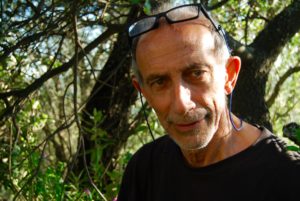Your cart is currently empty!
Vocatus atque non vocatus

This is an excerpt from one of the presentations featured in the Pari Center’s event Re-enchanting the World, in Pari from August 27 to September 3, 2019.
with Shantena Augusto Sabbadini
The power of science and technology comes at a price. It is built on a process of abstraction, whose outcome is a cold world, a world deprived of the dimension of meaning, on which all ethical choice depends. We have lost our sense of belonging and our uncentered action causes havoc in ourselves and in the life surrounding us. A turnaround is needed. And a turnaround will happen, whether we wish it or not. Vocatus atque non vocatus deus aderit, says the maxim sculpted above the entrance of Jung’s house: “Called or not called, the god will be present”. But the god/dess can have a wrathful aspect: let’s call her before she has to intervene uncalled. Calling her means reconnecting with the numinous, with wonder, with not-knowing, with humbleness, with awe, with gratitude for this wonderful ride we are freely given.

Shantena Augusto Sabbadini was awarded his PhD in physics from the University of California in 1976. He worked as a theoretical physicist at the University of Milan and at the University of California. In Milan he researched the foundations of quantum physics. In California he contributed to the first identification of a black hole.
In 1990s he was scientific consultant for the Eranos Foundation (www.eranosfoundation.org), an East-West research centre founded under the auspices of C.G. Jung in the 1930s. In that context he studied Chinese classics and produced various translations and commentaries in Italian and English, including the Yijing and the trilogy of Daoist classics, the Laozi, the Zhuangzi and the Liezi.
Presently he is director of the Pari Center for New Learning (www.paricenter.org) and lecturer at the Schumacher College (www.schumachercollege.org.uk), Devon, UK. He leads workshops on the philosophical implications of quantum physics, on Daoism, and on using the Yijing as a tool for introspection. His latest book, Pilgrimages to Emptiness, has just been published by Pari Publishing.
